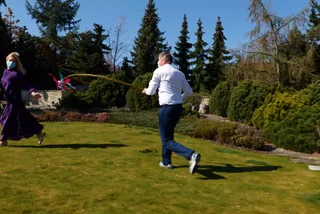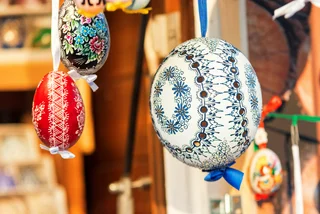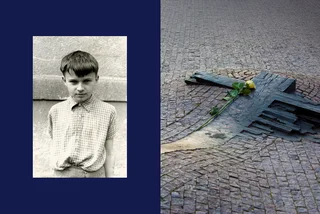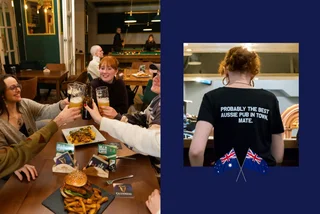Traditional Czech Easter celebrations are being discouraged this year due to the pandemic with health officials asking people to avoid the usual whips-out, slivo-soaked fun that has gained the Czech Republic a certain level of international notoriety.
While many Czechs are lamenting the loss of a tradition widely considered harmless fun, a growing contingent believes that calling off Easter, or at least the whipping part of it, isn’t necessarily a bad thing.
Among my friends (Czechs and foreigners alike) the whipping tradition has sparked an interesting debate on consent and the normalization of the power imbalance that this controversial custom represents.
“I actually like the tradition a lot,” Dara, a Czech mother of two, told me. “My whole family used to come together, me coloring eggs with my mum. My uncles and cousins chasing me around with sticks. Me proudly giving them my handmade colored eggs.”
Another Czech friend, Adéla, shared darker childhood memories. “I used to hide in my room all day so that no-one would whip me,” she said.
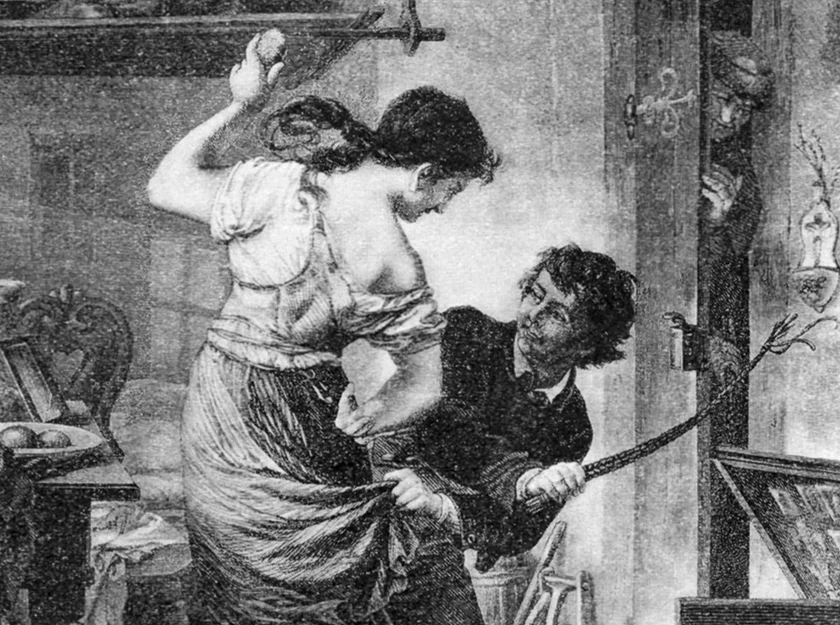
For those like me who grew up celebrating Easter with chocolate eggs, the pomlázka is the ultimate symbol of Czech Easter, second only to delicately hand-painted kraslice. It’s a willow stick decorated with ribbons and used as a whip in an ancient pagan fertility rite revived during the communist-era to drive out Christianity.
The tradition is so important to Czech culture that a 2019 survey conducted by Behavio Labs found that 60% of the nation considers it a highlight of their social calendars.
City dwellers even head out to the villages to experience the fanfare which typically begins on Monday morning with groups of lads throwing back shots. Pussywillow in hand, they walk door to door reciting Easter poems and bestowing health, youth, and fertility upon female family members and neighbors – from little girls to older women – with a “symbolic” whipping to the backside.
Women in turn thank the men for this honor by giving them colored eggs and sweets.
But just as Adéla and Dara’s accounts of the Czech Easter spanking differ, the Behavio study turned up a darker side to the beloved tradition: two-fifths of women experience pain, a third remained bruised, fifteen percent felt humiliated and afraid and a tenth was brought to tears by this "wholesome" custom.
I had never heard of the pomlázka tradition until I moved to Prague from the UK 15 years ago. Despite the disturbing running “joke” among Czech men that “It’s the only time of year I can beat my wife without guilt,” I brushed it off as a quaint, albeit weird, thing that Czechs did. I was impressed that in a modern world, Czechs were managing to keep their old customs alive and well.
But I’m no longer a newcomer blinded by the awe of this wonderful magical place I now call home. I’m now a mother trying to raise a son and daughter in an increasingly complicated world in a country that continues to fail women.
As a parent, I see my own daughter reluctantly giving up her agency in the same way she might if I asked her to give another adult a hug or kiss without giving her the option to say no. As a person in a position to empower her, I want her to know that body autonomy is something free from external influence and coercion.
My 8-year-old daughter perfectly surmised the Easter dilemma: “I really don’t want to be whipped, even if it’s light, but I also kind of do want to be whipped, because it’s tradition, and that’s what Czechs do.”
Her Polish father said, “It’s a beautiful tradition provided no-one is forced to do it.” Whilst his respect for body autonomy surprised me (he’s not the most woke of fellas), true consent needs to be both voluntary and informed. One might argue that if she opens the door and turns her backside around, consent is implied. But is it voluntary and informed?
There is no denying my daughter's statement implies she has an innate desire to fulfill what is expected of her. Just as Czech women are expected to prepare food for their uninvited willow-wielding visitors.
Many of those Czech women have had enough. “I think the culture around it is very problematic,” said another Czech friend Vanda. “I hate that girls are pushed into letting it happen even if they don’t want to.”
In a world that's increasingly calling out rape culture, it's difficult to ignore the flirtatious and sexual undertones of this beloved fanfare in which the man is the pursuer, the aggressor, the provider. The woman is the sweet submissive creature, who is valued according to her youth and beauty, and must say yes, even if she really means no, so as not to upset the social equilibrium.
When it comes to the whipping tradition both genders can be negatively affected and it's not just men who are to blame but the dictates of Czech culture. Women are (perhaps unwittingly) implicit and active participants in their own patriarchal oppression. Many Czech women I spoke to, far from wanting to avoid being whipped, welcomed it, including Jana from Prague who said “I would get offended if I didn’t get whipped."
A number of men I spoke to, including a Czech friend Aleš, said the custom reinforces traditional masculinity. “Easter teaches us what our conjugal duties are," he said. "Men have to be aggressive and women have to bear it. How that does not offend any and all women escapes me!”

Other Czech men I spoke to claimed women in their village demanded to be whipped and that they felt almost forced to comply. There was even the insinuation that their manhood and worthiness were synonymous with their willingness to participate.
Jiří, who's originally from Moravia where Easter celebrations hit fever pitch said, “Anyone who thinks Easter is about whipping should think twice about themselves,” but added that he would be damned by his grandmother for life if he didn’t participate in all holiday traditions, including whipping.
I’m aware that upon reading this some of you will say things like “If you don’t like it, go back to your own country” or “get away with your cancel culture.” But isn’t it time to talk about Czech Easter? Don’t we owe it to our children to think about it now?
Throughout history, traditions have changed as society has changed, just as traditional recipes changed as ingredients became unavailable, so why not Czech Easter? Why can’t girls whip boys? Can’t a modern man want to be youthful and fertile? Isn’t it a bit outdated to compare a woman's worth to her ability to breed? And what place does a medieval fertility ritual have in an overpopulated world anyway?
Czech public school teacher, Bri, an American living in Prague, put these questions to the boys in her class, asking if they would be ok with the girls whipping them, to which many replied, “No, because that’s not the tradition.”
With celebrations canceled this year, it feels like the perfect opportunity to have a similar discussion with our sons and daughters on how these kinds of acts feed the bigger monsters of patriarchal oppression, gender inequality, and domestic violence.
I’m not calling for war against Czech traditions. The last thing I want to do is offend the people that have welcomed me into their country, but I do want to open a respectful dialogue about cultural difference, the imbalance of power between genders, and Old-World traditions that are sorely in need of an update for our rapidly changing times.












 Reading time: 6 minutes
Reading time: 6 minutes 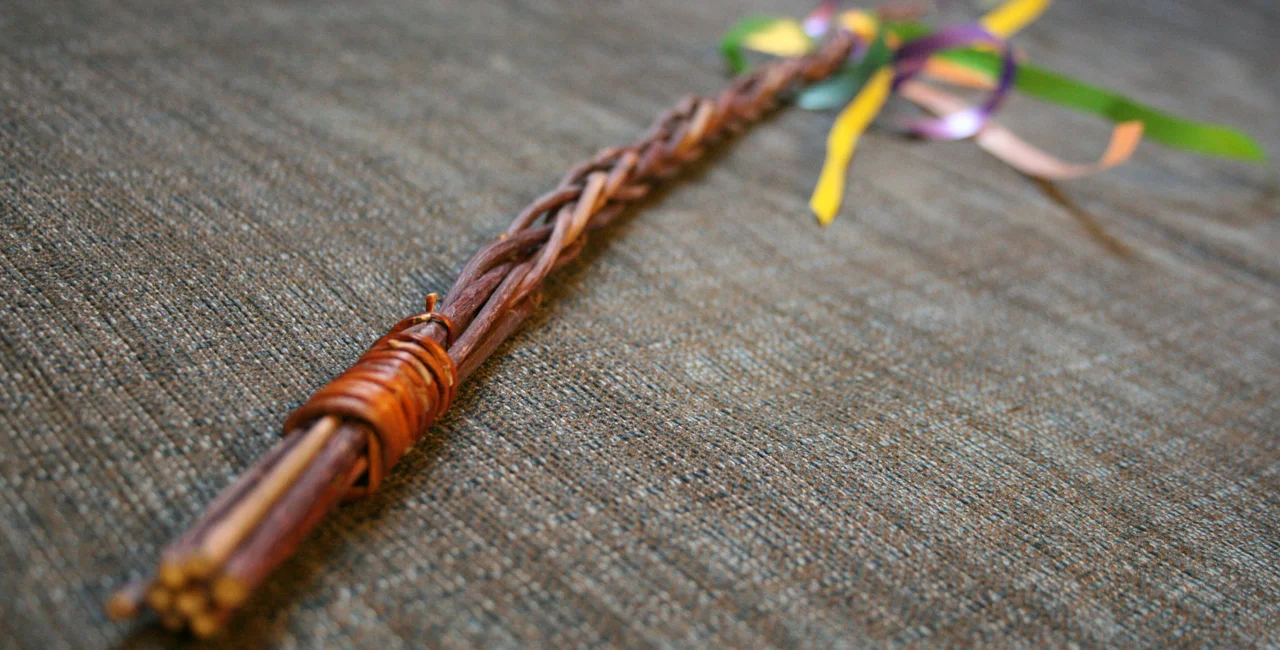


 English
(Advanced)
English
(Advanced)
